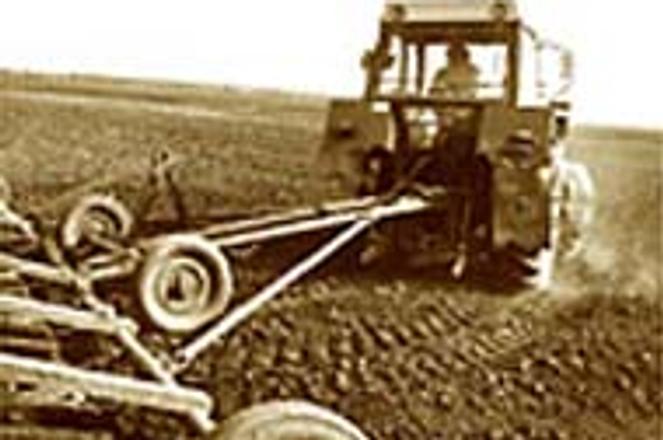With cereal harvests only 50% of the annual average, farmers had been hoping the government would cover more than 4.8 billion crowns of the 8 billion crowns in damage. This year's drought is the worst in 50 years.photo: Vladimír Hák
Farmers have hit out at what they say is the paltry compensation they will receive after a spring drought devastated this year's cereal crop, slashing harvests to just 50% of their annual average tonnage.
Agriculture Minister Pavol Koncoš told the Agrokomplex 2000 agricultural fair in Nitra August 20 that the government would be giving farmers 4.8 billion crowns ($102 million) in compensation for the drought damage. However, farmers' union chiefs said the subsidy was not enough.
"We have calculated that our losses from this drought are around 8 billion crowns. Even with the subsidies, we are still 3 billion crowns short. This will make the already negative results in our sector even more visible," said Cyril Moravčík, head of the Slovak Agricultural Workers' Union.
He added, however, that the money from the state would be used to ensure that planting of next year's crop would go ahead as normal, and that the number of livestock in the sector would be kept stable. "This year's drought will have a definite influence, but almost all of the [compensation] money will go to make sure that the losses are not felt so dramatically [next year]."
As of August 18, farmers had harvested 91% of their basic grains crop and had seen the average yield per hectare of wheat drop by nearly one tonne. The government on the same day announced its intention to put out an international tender for the import of fodder wheat and barley. Koncoš said that about 900,000 tonnes of grain would have to be brought into Slovakia this year to cover the effects of the drought.
The disastrous harvest has compounded the agricultural sector's woes after what Moravčík said has been a steady decline in the industry over the last decade.
"Since the beginning of the 1990s there has been an overall recession in the sector, and since 1995 it has deepened because our equipment became obsolete and couldn't be replaced, and people were also leaving the sector," he explained.
With production in agriculture dropping steadily over the last ten years, the sector is now bracing itself for reforms that are a pre-requisite to European Union entry in four years' time. But the prospects of Slovak agriculture were dealt a blow last week when economic ministers rejected the Agriculture Ministry's proposal that 124 billion crowns be allocated to the sector over the next five years.
While a compromise is expected to be reached, Moravčík issued a warning on any plans to skimp on allocation of funds to Slovakia's agricultural industry.
"[Deputy Prime Minister for the Economy Ivan] Mikloš said the government can't give farmers more money, but they should work hard to secure foreign investment into the sector and let farms continue. If we don't get more money we will be forced to put up the prices of agricultural goods. The customer will feel a change for the worse," he said.


